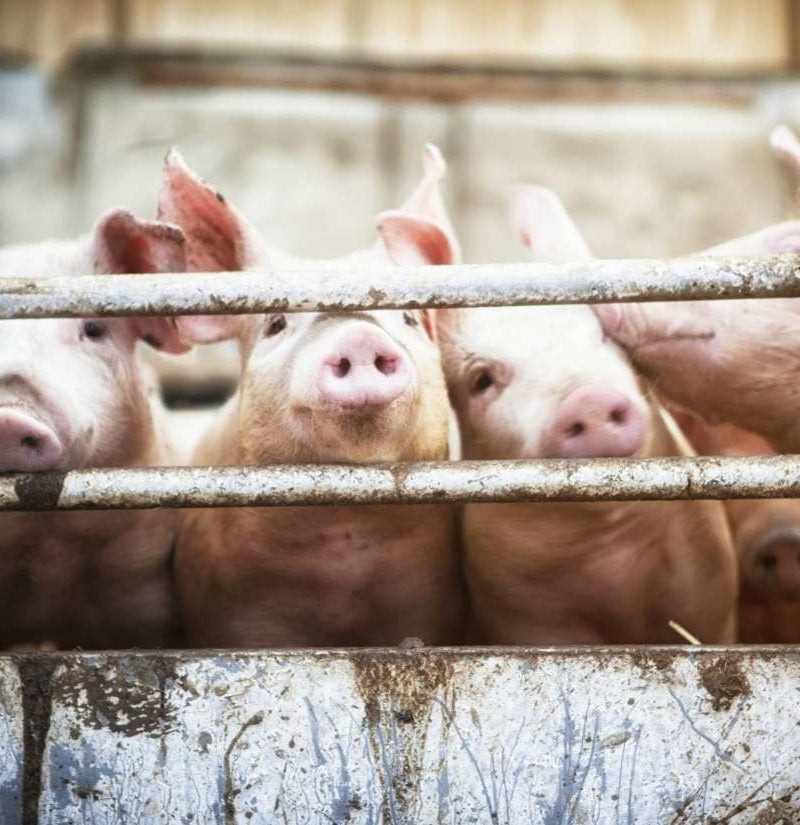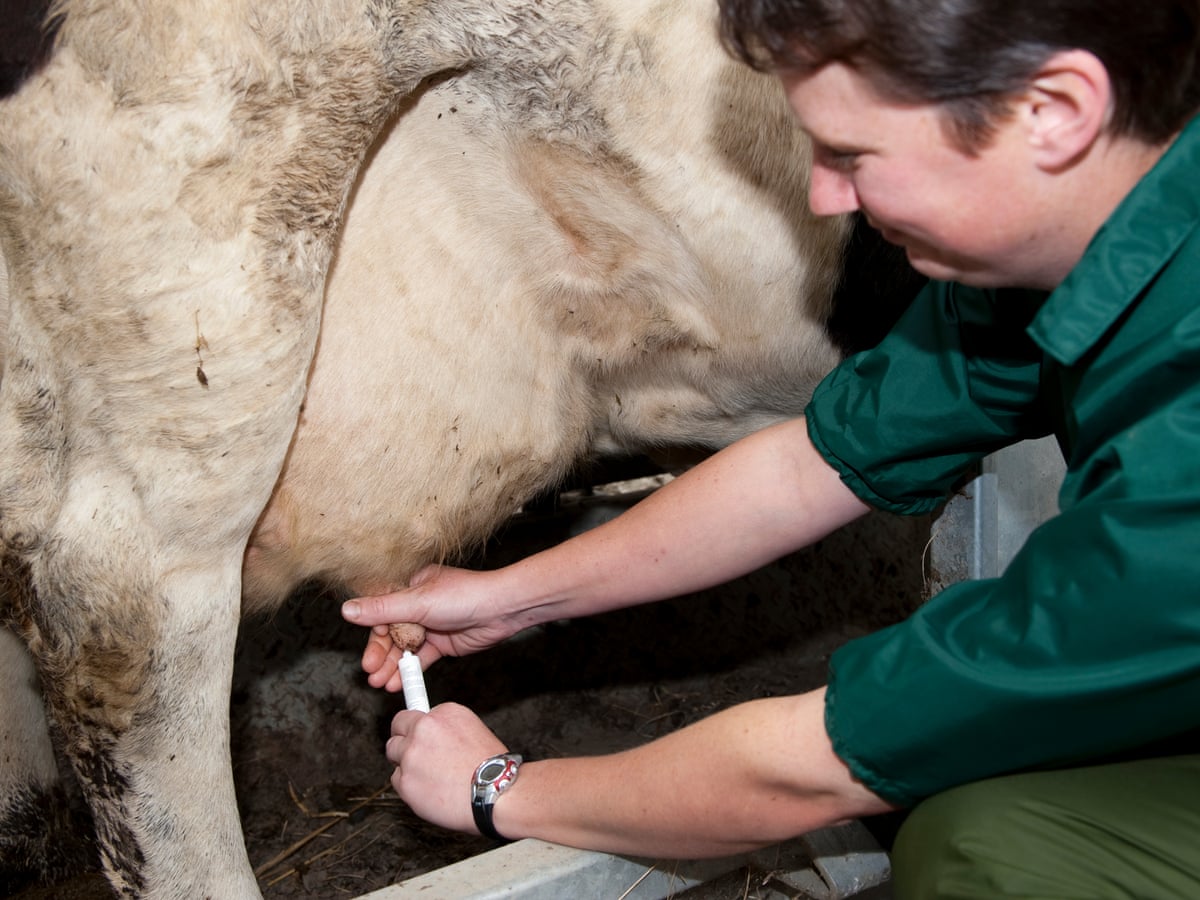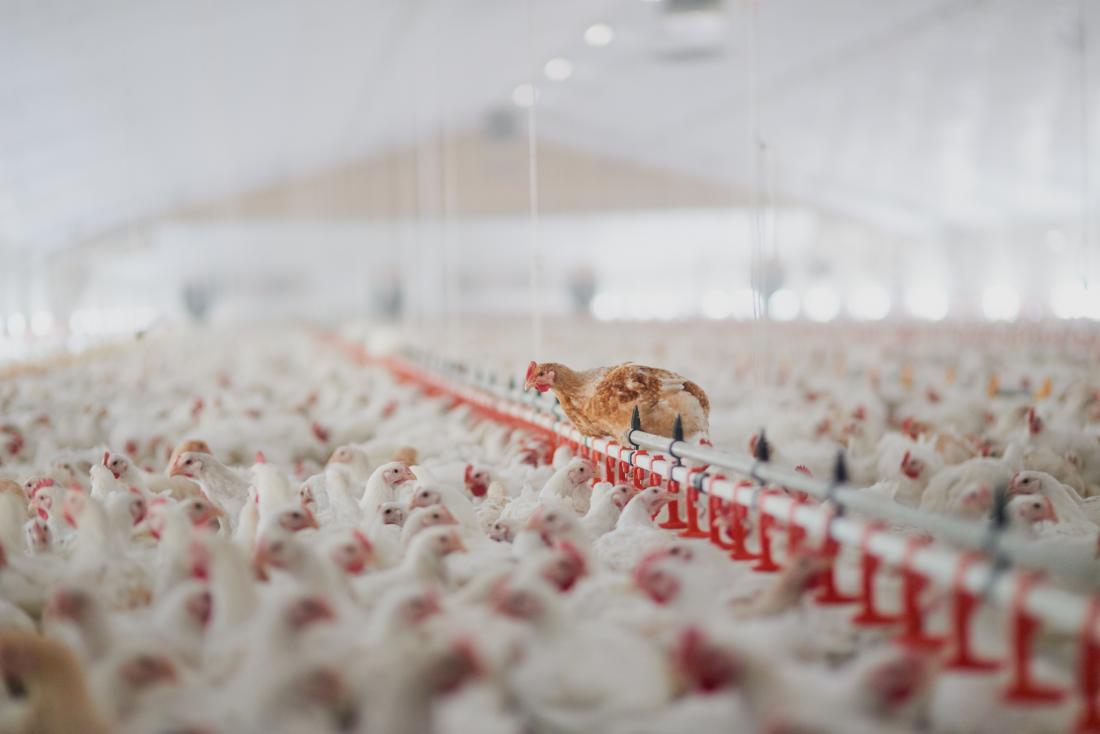31++ Antibiotics in animals affect humans ideas
Home » Wallpapers » 31++ Antibiotics in animals affect humans ideasYour Antibiotics in animals affect humans images are ready in this website. Antibiotics in animals affect humans are a topic that is being searched for and liked by netizens now. You can Find and Download the Antibiotics in animals affect humans files here. Find and Download all royalty-free photos.
If you’re looking for antibiotics in animals affect humans pictures information linked to the antibiotics in animals affect humans topic, you have come to the ideal site. Our site always gives you suggestions for seeing the highest quality video and image content, please kindly search and locate more informative video content and images that fit your interests.
Antibiotics In Animals Affect Humans. Additionally compared with human antibiotic prescribing requirements there are very few mandatory regulations for the antibiotics used by the ton on farms. However human antibiotic use is. Does antibiotics in meat affect humans. Michigan State University.
 Antimicrobial Resistance Its Surveillance Impact And Alternative Management Strategies In Dairy Animals Abstract Europe Pmc From europepmc.org
Antimicrobial Resistance Its Surveillance Impact And Alternative Management Strategies In Dairy Animals Abstract Europe Pmc From europepmc.org
Although misuse of antibiotics in human medicine is the principal cause of the problem antibiotic-resistant bacteria originating in animals are contributory factors with some types of resistance in some species of bacteria. Animals raised for food can become sick with respiratory gastrointestinal reproductive and other bacterial infections. Nearly half of the antibiotics administered to animals are also used in humans Kaufman 2000. Research results have shown that resistance of microorganisms exists in animals fed antibiotics and that this resistance can be transferred Linton 1977 a b. A comprehensive 2016 review of 50 studies published in Critical Reviews in Food Science and Nutrition concluded there is an established connection between animal antibiotic use and antibiotic resistance in animals but no established causal relationship between animal antibiotic use and human resistance related to campylobacter. Veterinarians are responsible for prescribing antibiotics if necessary and for choosing them appropriately.
Michigan State University.
Additionally compared with human antibiotic prescribing requirements there are very few mandatory regulations for the antibiotics used by the ton on farms. Bacteria that have become resistant and can no longer be treated with antibiotics can cause serious health risks in humans including death Hribar Schultz 2010. A federal analysis of 30 antibiotics used in animal feed found that the majority of them were likely to be contributing to bacterial infections that are resistant to treatment in people according. The use of antibiotics in animals may affect the human gut bacteria the level of antibiotics in animals is a hundred times lower after the withdrawal period We are confident in the safety of food from animals treated with antibiotics because the Food and Drug Administration has a rigorous approval process for animal medicine farmers adjusted their management practices to continue to ensure. A comprehensive 2016 review of 50 studies published in Critical Reviews in Food Science and Nutrition concluded there is an established connection between animal antibiotic use and antibiotic resistance in animals but no established causal relationship between animal antibiotic use and human resistance related to campylobacter. Antibiotics in Livestock Affects Human Health.
 Source: pinterest.com
Source: pinterest.com
Does antibiotics in meat affect humans. Antibiotic resistance in animals becomes a public health issue when there is transmission of antibiotic resistant bacteria or their resistance genes from animals to humans. The use of antibiotics in food animals selects for bacteria resistant to antibiotics used in humans and these might spread via the food to humans and cause human infection hence the banning of growth-promoters. Although misuse of antibiotics in human medicine is the principal cause of the problem antibiotic-resistant bacteria originating in animals are contributory factors with some types of resistance in some species of bacteria. Bacteria that have become resistant and can no longer be treated with antibiotics can cause serious health risks in humans including death Hribar Schultz 2010.
 Source: medicalnewstoday.com
Source: medicalnewstoday.com
β-lactam antibiotics are critically important for the treatment of human bacterial infections. Additionally compared with human antibiotic prescribing requirements there are very few mandatory regulations for the antibiotics used by the ton on farms. As in health. One 2004 estimate conducted by scientists consulting for the meat industry for instance placed the likelihood that antibiotic would not work in a human due to animal use at 1 in 82 million. Antibiotic resistance in animals becomes a public health issue when there is transmission of antibiotic resistant bacteria or their resistance genes from animals to humans.
 Source: pinterest.com
Source: pinterest.com
Animals raised for food can become sick with respiratory gastrointestinal reproductive and other bacterial infections. Animals raised for food can become sick with respiratory gastrointestinal reproductive and other bacterial infections. Antibiotics in Livestock Affects Human Health. As in health. The actual danger seems small and there might be disadvantages to human and to animal.
 Source: theguardian.com
Source: theguardian.com
β-lactam antibiotics are critically important for the treatment of human bacterial infections. Unchecked antibiotic use in animals may affect global human health. However there is inconclusive evidence that the use of antibiotics as growth promotants compromises therapy of humans and animals. Research results have shown that resistance of microorganisms exists in animals fed antibiotics and that this resistance can be transferred Linton 1977 a b. Antibiotics are added to animal feeds to treat and prevent infections and to improve growth and production.
 Source: medicalnewstoday.com
Source: medicalnewstoday.com
Unchecked antibiotic use in animals may affect global human health. Agency Suggests Limits on Antibiotics in Animals Because of Rise of Drug-Resistant Bacteria. A federal analysis of 30 antibiotics used in animal feed found that the majority of them were likely to be contributing to bacterial infections that are resistant to treatment in people according. Although misuse of antibiotics in human medicine is the principal cause of the problem antibiotic-resistant bacteria originating in animals are contributory factors with some types of resistance in some species of bacteria. Nearly half of the antibiotics administered to animals are also used in humans Kaufman 2000.
 Source: br.pinterest.com
Source: br.pinterest.com
As in health. However human antibiotic use is. A federal analysis of 30 antibiotics used in animal feed found that the majority of them were likely to be contributing to bacterial infections that are resistant to treatment in people according. Antibiotics are added to animal feeds to treat and prevent infections and to improve growth and production. Be treated with antibiotics.
 Source: za.pinterest.com
Source: za.pinterest.com
Antibiotics are added to animal feeds to treat and prevent infections and to improve growth and production. Although misuse of antibiotics in human medicine is the principal cause of the problem antibiotic-resistant bacteria originating in animals are contributory factors with some types of resistance in some species of bacteria. Research results have shown that resistance of microorganisms exists in animals fed antibiotics and that this resistance can be transferred Linton 1977 a b. Current evidence indicates that there is no direct impact of antibiotic residues in meat on human health but the risk of generating antibiotic-resistant bacteria in animals poses a potential risk to humans. Be treated with antibiotics.
 Source: pinterest.com
Source: pinterest.com
One 2004 estimate conducted by scientists consulting for the meat industry for instance placed the likelihood that antibiotic would not work in a human due to animal use at 1 in 82 million. Research results have shown that resistance of microorganisms exists in animals fed antibiotics and that this resistance can be transferred Linton 1977 a b. Agency Suggests Limits on Antibiotics in Animals Because of Rise of Drug-Resistant Bacteria. Animals raised for food can become sick with respiratory gastrointestinal reproductive and other bacterial infections. The use of antibiotics in animals may affect the human gut bacteria the level of antibiotics in animals is a hundred times lower after the withdrawal period We are confident in the safety of food from animals treated with antibiotics because the Food and Drug Administration has a rigorous approval process for animal medicine farmers adjusted their management practices to continue to ensure.
 Source: ar.pinterest.com
Source: ar.pinterest.com
Current evidence indicates that there is no direct impact of antibiotic residues in meat on human health but the risk of generating antibiotic-resistant bacteria in animals poses a potential risk to humans. Be treated with antibiotics. A federal analysis of 30 antibiotics used in animal feed found that the majority of them were likely to be contributing to bacterial infections that are resistant to treatment in people according. Nearly half of the antibiotics administered to animals are also used in humans Kaufman 2000. Although misuse of antibiotics in human medicine is the principal cause of the problem antibiotic-resistant bacteria originating in animals are contributory factors with some types of resistance in some species of bacteria.
 Source: pinterest.com
Source: pinterest.com
The actual danger seems small and there might be disadvantages to human and to animal. Be treated with antibiotics. Does antibiotics in meat affect humans. Using antibiotics in animals may raise the risk of transmitting drug-resistant bacteria to humans either by direct infection or by transferring resistance genes from agriculture into human. However human antibiotic use is.
 Source: pinterest.com
Source: pinterest.com
Additionally compared with human antibiotic prescribing requirements there are very few mandatory regulations for the antibiotics used by the ton on farms. However human antibiotic use is. The use of antibiotics in food animals selects for bacteria resistant to antibiotics used in humans and these might spread via the food to humans and cause human infection hence the banning of growth-promoters. Animals raised for food can become sick with respiratory gastrointestinal reproductive and other bacterial infections. This is particularly alarming since the use of antibiotics not only affects the animal they were given to but also disrupts the bacterial ecology within and on the animal that is then consumed by people in our society.
 Source: www1.udel.edu
Source: www1.udel.edu
Unchecked antibiotic use in animals may affect global human health. As in health. However there is inconclusive evidence that the use of antibiotics as growth promotants compromises therapy of humans and animals. Antibiotic resistance in animals becomes a public health issue when there is transmission of antibiotic resistant bacteria or their resistance genes from animals to humans. Antibiotics are added to animal feeds to treat and prevent infections and to improve growth and production.
 Source: europepmc.org
Source: europepmc.org
Antibiotics are added to animal feeds to treat and prevent infections and to improve growth and production. As in health. The actual danger seems small and there might be disadvantages to human and to animal. This is particularly alarming since the use of antibiotics not only affects the animal they were given to but also disrupts the bacterial ecology within and on the animal that is then consumed by people in our society. Be treated with antibiotics.
 Source: pinterest.com
Source: pinterest.com
Veterinarians are responsible for prescribing antibiotics if necessary and for choosing them appropriately. The use of antibiotics in animals may affect the human gut bacteria the level of antibiotics in animals is a hundred times lower after the withdrawal period We are confident in the safety of food from animals treated with antibiotics because the Food and Drug Administration has a rigorous approval process for animal medicine farmers adjusted their management practices to continue to ensure. Using antibiotics in animals may raise the risk of transmitting drug-resistant bacteria to humans either by direct infection or by transferring resistance genes from agriculture into human. Research results have shown that resistance of microorganisms exists in animals fed antibiotics and that this resistance can be transferred Linton 1977 a b. The use of antibiotics in food animals selects for bacteria resistant to antibiotics used in humans and these might spread via the food to humans and cause human infection hence the banning of growth-promoters.
 Source: br.pinterest.com
Source: br.pinterest.com
Does antibiotics in meat affect humans. Bacteria that have become resistant and can no longer be treated with antibiotics can cause serious health risks in humans including death Hribar Schultz 2010. Animal herds treated with antibiotics can develop bacteria resistant to the drugs and pass this on to humans directly through contact with farm workers or through food. The use of antibiotics in food animals selects for bacteria resistant to antibiotics used in humans and these might spread via the food to humans and cause human infection hence the banning of growth-promoters. The use of antibiotics in animals may affect the human gut bacteria the level of antibiotics in animals is a hundred times lower after the withdrawal period We are confident in the safety of food from animals treated with antibiotics because the Food and Drug Administration has a rigorous approval process for animal medicine farmers adjusted their management practices to continue to ensure.
 Source: teagasc.ie
Source: teagasc.ie
Current evidence indicates that there is no direct impact of antibiotic residues in meat on human health but the risk of generating antibiotic-resistant bacteria in animals poses a potential risk to humans. Antibiotic resistance in animals becomes a public health issue when there is transmission of antibiotic resistant bacteria or their resistance genes from animals to humans. β-lactam antibiotics are critically important for the treatment of human bacterial infections. The use of antibiotics in animals may affect the human gut bacteria the level of antibiotics in animals is a hundred times lower after the withdrawal period We are confident in the safety of food from animals treated with antibiotics because the Food and Drug Administration has a rigorous approval process for animal medicine farmers adjusted their management practices to continue to ensure. Animals raised for food can become sick with respiratory gastrointestinal reproductive and other bacterial infections.
 Source: pinterest.com
Source: pinterest.com
Using antibiotics in animals may raise the risk of transmitting drug-resistant bacteria to humans either by direct infection or by transferring resistance genes from agriculture into human. One 2004 estimate conducted by scientists consulting for the meat industry for instance placed the likelihood that antibiotic would not work in a human due to animal use at 1 in 82 million. Research results have shown that resistance of microorganisms exists in animals fed antibiotics and that this resistance can be transferred Linton 1977 a b. A federal analysis of 30 antibiotics used in animal feed found that the majority of them were likely to be contributing to bacterial infections that are resistant to treatment in people according. Agency Suggests Limits on Antibiotics in Animals Because of Rise of Drug-Resistant Bacteria.
 Source: pinterest.com
Source: pinterest.com
Unchecked antibiotic use in animals may affect global human health. Agency Suggests Limits on Antibiotics in Animals Because of Rise of Drug-Resistant Bacteria. Be treated with antibiotics. Using antibiotics in animals may raise the risk of transmitting drug-resistant bacteria to humans either by direct infection or by transferring resistance genes from agriculture into human. The actual danger seems small and there might be disadvantages to human and to animal.
This site is an open community for users to share their favorite wallpapers on the internet, all images or pictures in this website are for personal wallpaper use only, it is stricly prohibited to use this wallpaper for commercial purposes, if you are the author and find this image is shared without your permission, please kindly raise a DMCA report to Us.
If you find this site serviceableness, please support us by sharing this posts to your own social media accounts like Facebook, Instagram and so on or you can also save this blog page with the title antibiotics in animals affect humans by using Ctrl + D for devices a laptop with a Windows operating system or Command + D for laptops with an Apple operating system. If you use a smartphone, you can also use the drawer menu of the browser you are using. Whether it’s a Windows, Mac, iOS or Android operating system, you will still be able to bookmark this website.